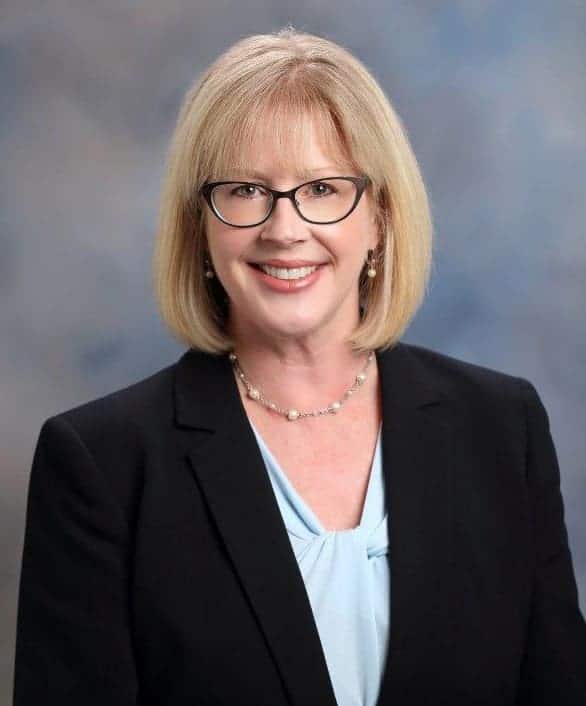5 Questions Women Over 50 Going Through Divorce Should Ask
 There is a “gray divorce revolution” going on in the United States. In a research study conducted by Bowling Green State University on the rising rate of divorce among older adults, researchers found that Americans over age 50 are more than twice as likely to divorce as people in their age group 20 years ago. This is happening at a time when the divorce rate for younger age groups has stabilized. Another interesting finding is that 55 percent of the so-called “gray divorces” take place between couples that have been married for more than 20 years.
There is a “gray divorce revolution” going on in the United States. In a research study conducted by Bowling Green State University on the rising rate of divorce among older adults, researchers found that Americans over age 50 are more than twice as likely to divorce as people in their age group 20 years ago. This is happening at a time when the divorce rate for younger age groups has stabilized. Another interesting finding is that 55 percent of the so-called “gray divorces” take place between couples that have been married for more than 20 years.
For women over 50, divorce can be a traumatic experience emotionally and financially, even if they are the ones initiating it. Here are five important questions you might ask yourself if you are a woman facing a divorce after age 50:
- Can I collect Social Security benefits on my ex-spouse’s earnings record?
If you were married for longer than 10 years you may be able to collect Social Security benefits on your former spouse’s work record if you are still single and at least 62 years old. Another stipulation is that the benefit you would receive based on your work record must be less than what you would receive based on your ex’s record, and you must have been divorced at least two years when you apply.
There are some benefits to waiting until you reach full retirement age (FRA) before your apply for Social Security benefits. The spousal benefit is at most 50% of the spouse’s full benefits. If you file before your FRA, your 50% share of the benefits will be reduced by between 7% and 8% each year until you attain FRA. Once you reach full retirement age your benefits will go up by about 8% between the ages of 66 and 70, so if you wait to apply it could mean a higher payout later. The spousal benefit does not increase when you reach FRA.
- How are pensions and retirement accounts divided in divorce in Tennessee?
Pensions and retirement accounts are marital property in Tennessee, and there are a couple of different ways to value a pension or retirement account but there are two broad categories for retirement benefits: defined contribution plans and defined benefit plans.
If spouses are awarded a share in each other’s retirement plan, the attorneys must complete a Qualified Domestic Relations Order (QDRO). The QDRO will govern how and when the retirement plan will be divided. QDROs are fairly complex, so you will most likely have questions about them. Your family law attorney can answer any of your questions about your retirement plan.
- Will I get alimony?
There are many factors for the Court to consider in determining if you will get alimony. For example, If you have been married for more than ten years, and if you stayed home and took responsibility for the care of the children and the upkeep of the house along with several other factors, you are likely a strong candidate for alimony. However, this doesn’t mean that you will be entitled to alimony “until death or remarriage.” Tennessee law provides for a number of different types of alimony awards. Make sure you speak with your attorney about whether you are an alimony candidate, and if so, the kind of alimony you are most likely to obtain.
- What are the tax implications of the divorce?
Talk with your attorney and an accountant if necessary to get advice about strategies for minimizing your tax liability during and after the divorce. You may find yourself taxed at a much higher rate than you were before you divorced, which can make saving for the future difficult. Make sure to discuss your concerns with your attorney and your accountant.
- Am I working with the right lawyer?
Regardless of your age, going through a divorce can be one of the most stressful experiences of your life. Having a smart, dependable attorney on your side who has years of experience guiding other women over the age of 50 through such a challenging time can help make the process go so much more smoothly for you. A good attorney will fight for the best settlement possible, which will help prepare you for the next chapter in your life.
If you are contemplating divorce you will want to take the time to sit down with a knowledgeable divorce attorney who will guide you through the process and protect your interests. Call Miller Upshaw Family Law, PLLC today and schedule an in-person or video consultation. We are happy to answer your questions and ease your mind.

Karla C. Miller has devoted her entire career to the practice of family law in Tennessee. She attended Auburn University and Nashville School of Law, and upon graduation in 1996, she opened her own law firm and has been assisting families throughout Tennessee since then. Learn more about Karla C. Miller here.
